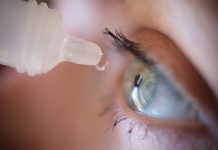
High blood pressure is a chronic illness affecting more than a third of Australians over the age of 18.
If left untreated, the disease can lead to serious health conditions, like stroke and heart disease.
Management of the illness generally requires prescribed medicine, like hydrochlorothiazide, alongside lifestyle changes, like eating a healthier diet and getting regular exercise.
But in a recent study published in Basic & Clinical Pharmacology & Toxicology, researchers found hydrochlorothiazide—one of the most prescribed high blood pressure drugs—is linked to increased risks of developing skin cancer among older people.
The drug contains photosynthesizing properties, which can make the skin more sensitive to the sun.
The study is done at UNSW Sydney. One author is Dr. Benjamin Daniels.
In the study, the team used data from the Department of Veterans Affairs (DVA) in Australia.
The participants were DVA healthcare cardholders (aged 65 and over) who lived in NSW between 2004 and 2015.
The researchers compared hydrochlorothiazide use in people who had been diagnosed with lip cancer (45 cases) or malignant melanoma (659 cases) with those with neither diagnosis (13,300 controls).
They found an increased risk for developing malignant melanoma and squamous cell cancer of the lip (lip cancer) with hydrochlorothiazide use.
For lip cancer, the risk also appears to be cumulative—that is, the longer that hydrochlorothiazide is used, the higher the risk of developing lip cancer.
The researchers don’t want anyone to suddenly stop taking hydrochlorothiazide out of fear of developing skin cancer.
But they say the skin cancer risk is something for prescribers to be aware of.
Doctors need to consider conducting more skin checks for their patients or reinforcing advice around sun-smart behaviors that everyone should be aware of, like adequate protection when UV is higher than three and avoiding sun exposure during peak UV times.
While the link between hydrochlorothiazide and an increased risk of skin cancer has been found in recent research from the UK, Denmark, and the U.S., this is the first time it’s been shown in Australia.
Copyright © 2021 Knowridge Science Report. All rights reserved.



